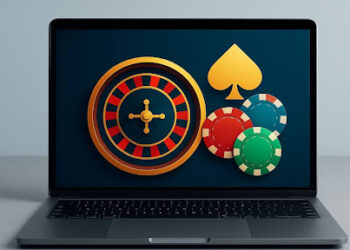
In both sports and gambling, success is rarely a coincidence. Whether it’s a perfectly timed pass or a strategic wager, the line between triumph and failure is often razor-thin. In recent years, the digital gambling scene has shifted dramatically. With the rise of mobile-first platforms, fast payouts, and real-time play, raw instinct alone just doesn’t cut it anymore.
Gamblers—especially those coming from sports backgrounds—are beginning to recognize a truth long known on the pitch: knowledge, timing, and patience win games. Nowhere is that more evident than in the growing popularity of bonus structures and mechanics that reward tactical thinking over blind risk.

From Playbooks to Payouts: The Strategic Edge
Just like a football coach won’t burn all substitutions in the first half, smart bettors know the value of holding back, reading the field, and making moves when the moment’s right. That mindset is being translated into the way players interact with online casinos—especially when it comes to choosing bonuses.
One such option that appeals to seasoned players is the non-sticky bonus. It’s not just about getting free funds, but about maintaining control. In practical terms, it allows players to play with their own money first, without immediately locking into bonus terms. If a win comes early, they can cash out without being tied to conditions. Only if the initial funds are lost does the bonus kick in—with its own rules and requirements.
This structure turns the bonus from a gamble into a calculated fallback—an insurance policy of sorts. And that shift in thinking is a microcosm of a broader movement within the gambling community: playing smarter, not harder.
The Psychology of Timing
What separates an average bettor from a successful one? Timing. It’s a concept athletes and coaches understand intuitively. But in the context of online gambling, it’s about much more than reacting quickly—it’s about knowing when not to act.
For instance, jumping on a bonus offer just because it looks generous can backfire if the terms are overly restrictive. Or chasing losses in a volatile game may feel urgent, but often leads to further losses. Strategic players wait, evaluate, and strike when conditions favor them.
This mindset is increasingly mirrored in the tools and promotions offered by modern casinos. Flexible bonus models, rapid withdrawals, and transparent terms are not just marketing features—they’re tactical assets for those who know how to use them. The ability to pause, analyze, and make decisions under pressure is what turns an impulsive player into a consistent winner.
Data-Driven Play: The New Normal
We live in a data-rich world. Sports teams use analytics to scout talent, refine tactics, and optimize performance. Online gamblers are doing the same. They study payout rates, track bonus structures, monitor volatility in slots, and test strategies over time. In forums and Telegram groups, spreadsheets are shared with the same seriousness as fantasy football picks.
This new breed of player doesn’t rely on gut feeling—they crunch numbers. It’s not uncommon for high-frequency players to maintain meticulous logs of their sessions, experimenting with game sequences or bonus models like cashback versus deposit-match rewards. Over time, they identify patterns, trim losses, and grow gains.
The takeaway? Gambling has entered its “Moneyball” era. The edge isn’t emotional—it’s statistical. And platforms that cater to this new mindset—offering flexibility, transparency, and control—are emerging as favorites among informed players.
Risk Management Over High Stakes
In the past, gambling was often romanticized as high-risk, high-reward. The thrill of the all-in bet, the dramatic comeback win. But for many of today’s players, the goal isn’t glory—it’s sustainability.
This is where bonus mechanics like the non-sticky model come into play. It shifts the dynamic. Instead of forcing players into immediate high-risk behavior to unlock rewards, it gives them the freedom to explore outcomes first. Only if luck turns cold does the bonus step in.
It’s risk management in action. Similar to a coach playing defensively until the moment is right to counterattack, this approach minimizes exposure while maximizing opportunity.
The Future Is Player-Centric
What we’re witnessing is a quiet but powerful shift in the culture of online gambling. The era of flashy promotions with hidden traps is giving way to smarter systems that reward patience, knowledge, and control.
Players want terms they understand. They want choices that reflect their level of experience. And they want promotions that work with them—not against them.
Casinos that recognize this are rethinking their interfaces, their bonus structures, and even their customer service models. Fast KYC (Know Your Customer) checks, instant withdrawals, and tailored bonus suggestions are becoming the new standard. The industry is learning that loyalty doesn’t come from gimmicks—it comes from respect.
Lessons from the Sports World
Athletes train for years to master their discipline. They study, practice, and constantly refine their craft. The same level of attention is now being applied to gambling strategies.
From bankroll management to psychological discipline, experienced bettors approach their hobby like a profession. They set limits, analyze sessions, and know when to walk away. These are not reckless players—they are measured ones.
In that way, gambling is becoming less about luck and more about decision-making. The game is still uncertain—but how you play it is increasingly up to you.
Final Thoughts: Betting on Yourself
Smart play doesn’t mean risk-free play. But it does mean informed play. It means betting on your timing, your analysis, and your ability to walk away when needed.
The shift toward strategy-based gambling reflects a deeper cultural trend: people want more control over their experiences. Whether it’s through smarter bonus models, better tools, or simple self-awareness, modern players are reclaiming that control.
So the next time you open a casino app or consider a bonus offer, think like a coach. Ask: What’s the game plan? Because in this arena, the smartest move isn’t always the boldest—it’s the best timed.










